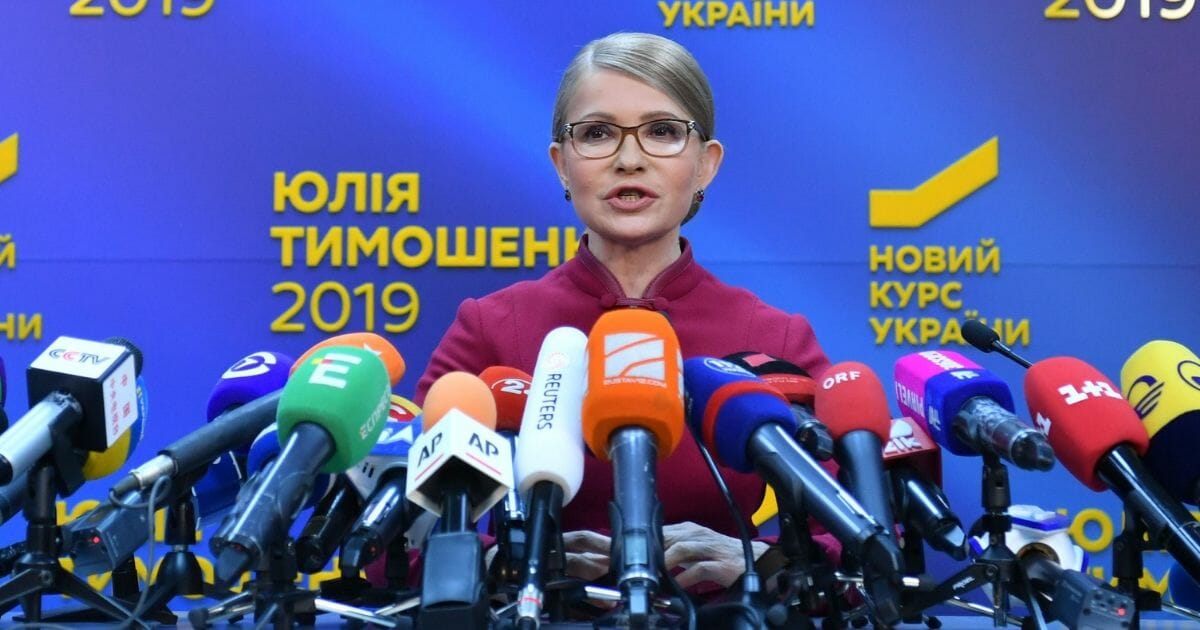
Ukraine Needs A Political, Not a Technocrat, Prime Minister
Ukraine’s parliamentary election is, in essence, boiling down to one question: who should be the prime minister during the presidency of Volodomyr Zelensky?
Of course, that one question contains others: who can best handle negotiations with the IMF, with Russia, with the new team that will soon be leading the European Union, with the Asian giants — China and India — who are increasingly important trade partners for Ukraine, and with U.S. President Donald Trump?
But the most important question of all is this: who can help President Zelensky unlock Ukraine’s vast potential, and thereby raise the living standards of its people?
Although it is fashionable to be dismissive of political experience, particularly hard won experience, Ukraine’s unique — and at times terrifying security and economic problems — call not for some cold technocrat as prime minister. Not some blind follower of textbook orthodoxies. Rather, the current time calls for someone with the political instincts to work at President Zelensky’s side in confronting the country’s massive problems.
Here, the real issue is whether the next prime minister will be someone who has not only has tackled Ukraine’s problems head-on before, but is a familiar face and voice to the world leaders with whom Ukraine must deal if its security is to be maintained and economy is to prosper.
A technocrat-led government is not the answer for Ukraine. The failures of technocratic governments in Italy, Greece, and elsewhere in recent years give potent witness. Indeed, the inability of those technocratic governments to forge programs politically palatable to their citizens have left them in far worse shape than before the technocrats took office. Failures leading in both countries to the advent of populist governments.
Put simply, there is no one in Ukraine who can match Yulia Tymoshenko in both experience and global connections. Indeed, the seminal attribute that Tymoshenko could bring once more to Ukraine’s premiership should the Rada choose her following the elections, is that rare capacity to recognize sound economic, political and strategic arguments and counsel in the midst of a crisis.
Tymoshenko, indeed, has proven to be a shrewd judge of the technical advice given to her. She understands that unless technical solutions can gain public support, they are doomed to failure.
Recall the financial crisis of 2008. As the world financial superstructure approached meltdown in the autumn of 2008, beginning with the collapse of Lehman Brothers, Tymoshenko’s cool-headedness in the face of a threat to Ukraine’s financial stability was critical in keeping the world from tumbling into the abyss. Numerous technocrats were advising that she not repay a loan being called in by the U.S. investment bank Morgan Stanley. Tymoshenko, as she would do throughout her years as Ukraine’s prime minister, listened to the technocrats and then listened to her inner politician.
Despite many of her technocratic advisors, both domestic and foreign, urging her not to repay, Tymoshenko understood that the real issue was not the money, but Ukraine’s standing among nations. If Ukraine was seen as pulling the plug on the world economy, it would become an international pariah. Its very independence would be called into question.
So, painful as it was, she authorized repayment — positioning Ukraine as a stable reliable partner for both governments and investors.
The recent presidential election demonstrated, clearly, that the Ukrainian people are in no mood for a government that imposes its solutions to their problems. That is the way of technocratic administrations. Technocrats, after all, are obsessed with what they think is best for their institutions. They simply are unable to understand the essential need to secure the consent of the governed.
Clearly, there are severe limits to the benefits of technocratic thinking when crafting effective government policy. As the work of the MIT economist Daron Acemoglu has demonstrated, policy ideas that are eminently sensible in theory all too often fail in practice because of unintended, and unforeseen, political consequences. Moreover, the supposedly “good” economic policies that technocrats promulgate usually have the unfortunate side effect of reinforcing already dominant groups and weakening frail ones.
If there is one lesson to be drawn from President Zelensky’s victory this spring it is that the Ukrainian population is no longer willing to pay the price for policies that are not going to bring direct improvements to their lives.
Ukraine’s problems, the war in Donetsk and Luhansk, the fight against corruption, the negotiations with the IMF, all demand not technical solutions but wise political ones. They will only be resolved with the consent of Ukrainians, and that consent can only be gained by the efforts of a savvy and experienced politician. Yulia Tymoshenko is such a politician.
Having suffered years of unjust imprisonment, she senses first-hand how her fellow citizens feel about the corruption and incompetence that often typifies the Ukrainian state’s actions. She possesses an instinctive feel for the needs of Ukrainians. And that is just what the country cries out for in its prime minister at this moment.
The views expressed in this opinion article are those of their author and are not necessarily either shared or endorsed by the owners of this website. If you are interested in contributing an Op-Ed to The Western Journal, you can learn about our submission guidelines and process here.
Truth and Accuracy
We are committed to truth and accuracy in all of our journalism. Read our editorial standards.
Advertise with The Western Journal and reach millions of highly engaged readers, while supporting our work. Advertise Today.











